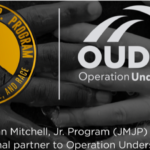Genocide and the Black Experience
Special Issue of Genocide Studies and Prevention
We are soliciting manuscripts on Genocide and the Black Experience for a special issue of Genocide Studies and Prevention, the leading academic journal in Genocide Studies, with one of the largest journal readerships in the world.
We seek manuscripts on Genocide and the Black Experience in the United States, the Americas, Europe, Africa, Australia, Asia, and the African Diaspora. We are interested in historical, anthropological, cultural, sociological, literary, artistic, economic, and legal approaches, as well as any other disciplinary perspective authors wish to bring to their study of the subject. We define genocide broadly and encourage authors to consider genocidal processes as well as issues of human rights and crimes against humanity.
The issue editors are open to scholarship that is based on any methodological, philosophical, or disciplinary tradition. We also welcome manuscripts that draw upon traditions that are marginalized in mainstream academic scholarship, including African and African Diasporic intellectual movements, and the philosophical traditions of the Black Liberation movement in its global, American, European, African, or Asian iterations. Scholars who wish to approach their study from a post-colonial or decolonizing framework are encouraged to submit.
Given the timeliness of the Black Lives Matter protests, which have spread from the United States around the entire world, we seek to publish at least one manuscript on Black Lives Matter and at least one manuscript looking at police violence and the policing of Black bodies through the lens of “Crimes of the State” and/or genocide studies.
Due dates:
- February 15: Email 200-word abstracts to the special issue editors.
- March 15: Email draft manuscripts, between 5,000 – 10,000 words, to the special issue editors. Manuscripts should follow GSP’s submission guidelines.
- Early April: Drafts will be returned with editorial suggestions to authors.
- April 30: Authors will submit their manuscripts to GSP through the GSP web portal. Please send the special issue editors an email to let them know you submitted the manuscript, so we can effectively communicate with the GSP editorial board.
About the Journal:
Genocide Studies and Prevention (GSP) is the flagship journal of the International Association of Genocide Scholars. A signatory of DORA a pledge to eliminate the use of journal-based citation metrics to evaluate scientists and journals that have been endorsed by several European governments’ national-level research agencies and leading academic departments around the world—GSP is an open-access journal and does not report citation metrics. GSP is one of the largest scholarly journals in the world, with over 100,000 annual readers and article downloads from almost every country.
Special Issue Process:
GSP is a double-blind peer-reviewed journal. As the curators of this special issue, we are not on GSP’s editorial board and therefore we will not be involved in the peer-review process. The GSP editorial board will be charged with arranging the peer reviews and will have the final say over whether an article is published or not.
As special issue editors, from the submissions we receive, we will curate a selection of around 20 manuscripts to GSP for consideration in the special issue. We will include any manuscripts that GSP does not publish in an edited book on the same subject.
About the Special Editors:
Dr. Charles L. Chavis, Jr., is an Assistant Professor of Conflict Resolution and History at the Jimmy and Rosalynn Carter School for Peace and Conflict Resolution at George Mason University. At the Carter School, he is the founding director of the John Mitchell, Jr. Program for History, Justice, and Race, which engages in scholarship and practice that aims to complicate historical memory, build peace, and promote racial justice.
Ajanet Rountree is the Program Coordinator at the Mitchell Program and a doctoral student at the Carter School.
Oluwagbemiga Dasylva is the Research Coordinator at the Mitchell Program and a doctoral candidate at the Carter School.
Contact:
All submissions, inquiries, and questions should be sent to Dr. Charles L. Chavis, Jr. (cchavis2@gmu.edu). In all correspondence, please cc: Ajanet Rountree (arountr@gmu.edu) and Oluwagbemiga Dasylva (odasylva@gmu.edu).





